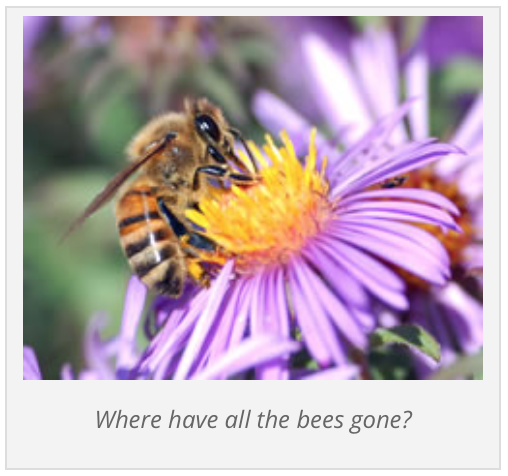Campaign to save the honey bees
18th Jul 2009

I was watering the garden plants last weekend and was really pleased to see bees gathering pollen on a thyme bush - what seems like an increasingly rare sight these days.
At this time of year I'd normally be reminding my daughters not to run barefoot on the grass because of the number of bees gathering pollen in the clover. But not any more. Rarely is there a single bee to be seen anywhere in the garden - let alone to be stepped on!
So what has happened to the bees? Why have they become such a rare sight?I was really alarmed by a book I read recently called 'A world without bees'. It seemed to lay the blame for the global demise of bee colonies on a worldwide plague of the varroa mite - which spread viruses amongst bees.
Banning neonicotinoids
On the same day I'd seen bees on the thyme bush, I happened to read an article in the Soil Association's newsletter, linking a commonly used pesticide 'neonicotinoids' to the disappearance of bees. The evidence against these chemicals is strong enough to have prompted a ban on neonicotinoids in most European countries - but not in the UK.
We use English honey in some of our products, but the lack of honey for soap making isn't a great concern in the general scheme of things. According to the Soil Association, one third of the world's food supplies is dependent on bee pollenation. If the honey bee disappeared forever, we could be facing a real food crisis.
We may not be able to do anything practical to cure a bee virus (other than donate to scientific research), but we can support the Soil Association's campaign to put pressure on the UK government to ban the use of these harmful chemicals.
To find out more, and support the Soil Association's campaign, click on this link.
